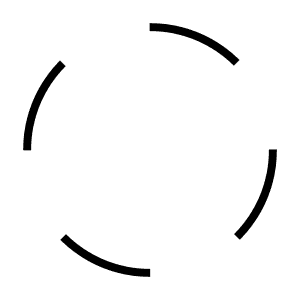“Fusées” isn’t the first collaboration between Thomas Bonvalet and Jean-Luc Guionnet, their first joint effort “Loges de Souffle” appearing on Be Coq last year. The same label also put out a vinyl edition of “Fusées”, but now Sarah Hennies’ label Weighter Recordings has thankfully stepped in with a CD and download release for the rest of us. Although the two artists are primarily known for their attachments to a particular instrument (guitar for Bonvalet, saxaphone for Guionnet), these instruments are only recognisably audible towards the end of the album, with the majority of sounds belonging to the percussive and analogue-electronic domains. In fact, so rhythmically driven is the album that I would’ve guessed that one of them was a percussionist.
The album has a roughness and warmth to its timbres that is very appealing. Ideas unfold at a steady pace, not remaining static but not rushing anywhere either — a pleasure in sounds, but also in their organisation. The album title translates into English as ‘rockets’, and while there’s plenty of chemical energy and fire, there are also clear trajectories and flight plans. Whether these trajectories were planned out in advance or made up on the fly is, from the listener’s point of view, perhaps not so important. Developing structure can be clearly heard on tracks such as ‘2 mer D_v3’, where the interplay between synth stabs and pounding percussion twists and turns in an intricate dance. Even at its most off-kilter, such as in the broken ringtone melody of ‘1 mer B_v6_oct’, the music retains a sense of intention and direction; the transition through several shades of chaos is as detailed and as captivating as the harmonic micro-shifts of Hennies’ percussive rolls, just with much brasher colours.
The guitar playing on ‘3 mar N_v3’ produces both percussive rhythm and modulating sinewave-like pitches, a synecdoche for the shapes of the album as a whole. Later in the piece, long single-note sax crescendos mould timbre and volume like clay on a potter’s wheel, inflected by stop-start percussion — a stunning effect. Only very rarely, such as on the last track, does the music slide into stock free improvisationish territory, competently done but already explored. “Fusées” is a propulsive album bursting with ideas, distilled into lucid and finely-balanced forms that dazzle and enthral." - Fluid Radio
---
Thomas Bonvalet / audio ducker, microphones, amplificateurs, frappements de pieds et de mains, peau de tambour, banjo six cordes, componium, diapasons, plectre de pavot sec …
Jean Luc Guionnet / deux vieux orgues électriques (Bontempi Tempest & Farfisa Matador), trois petits harmoniums, une table de mixage bouclée et quelques micros contacts et magnétiques, un petit trumpet speaker mobile, trompette de poche, saxophone soprano
---
Recorded at Instants Chavirés, January 2014 by Adrian Riffo.
Thanks to Instants Chavirés, Adrian Riffo, La Fonderie and François Tanguy.









